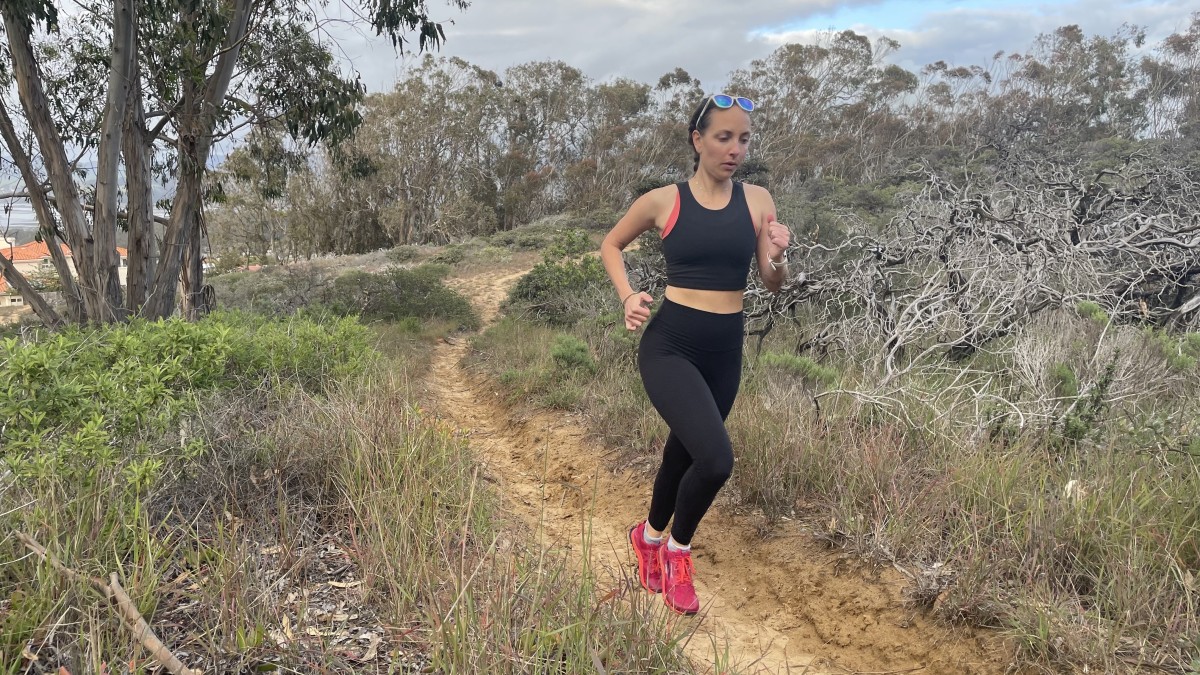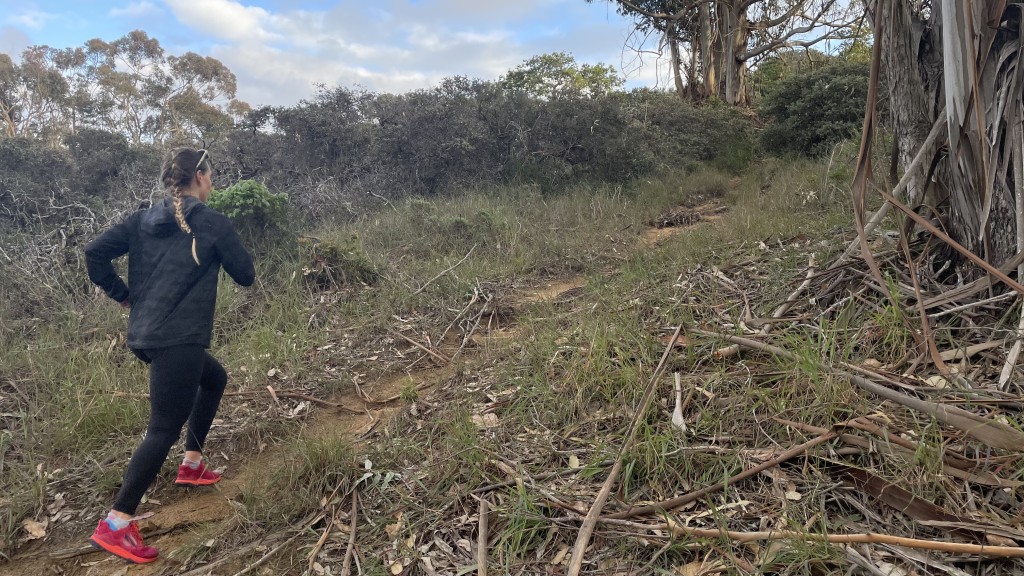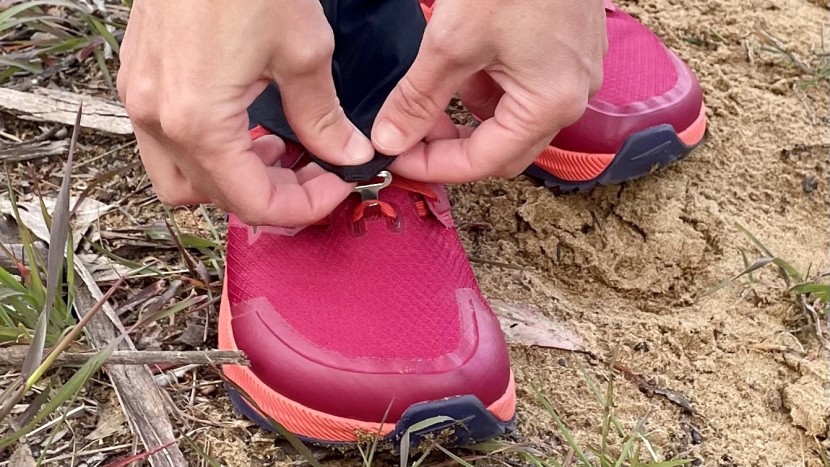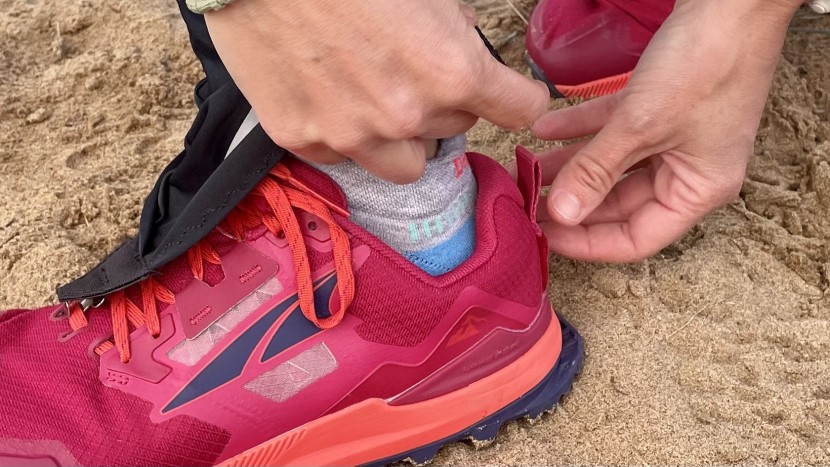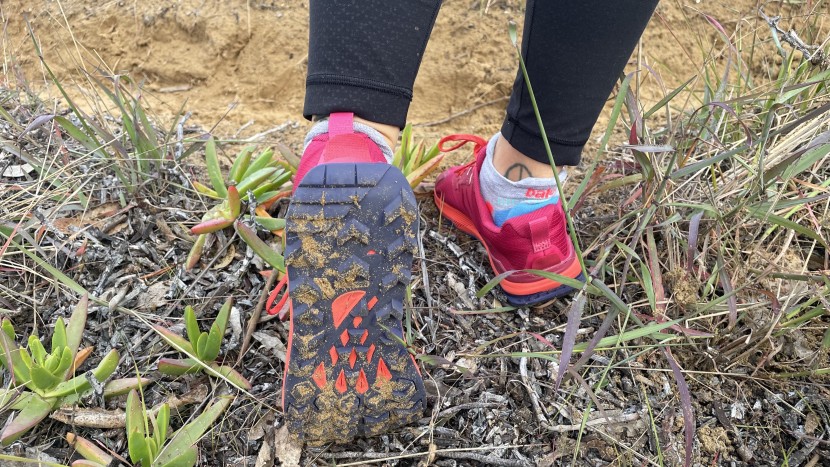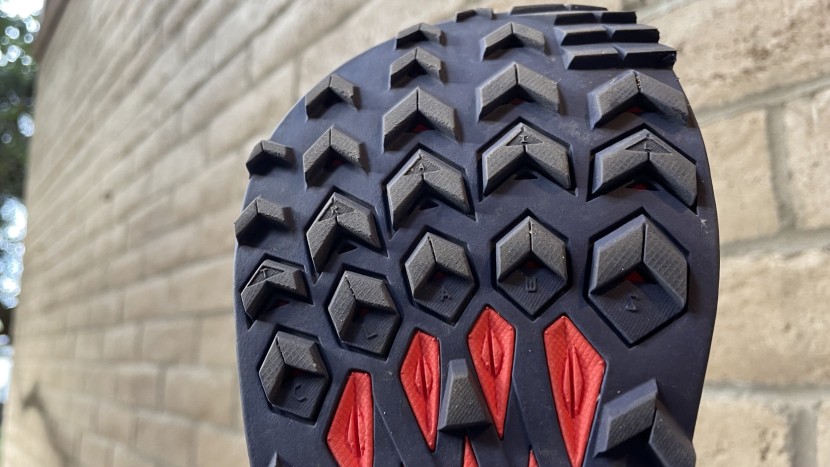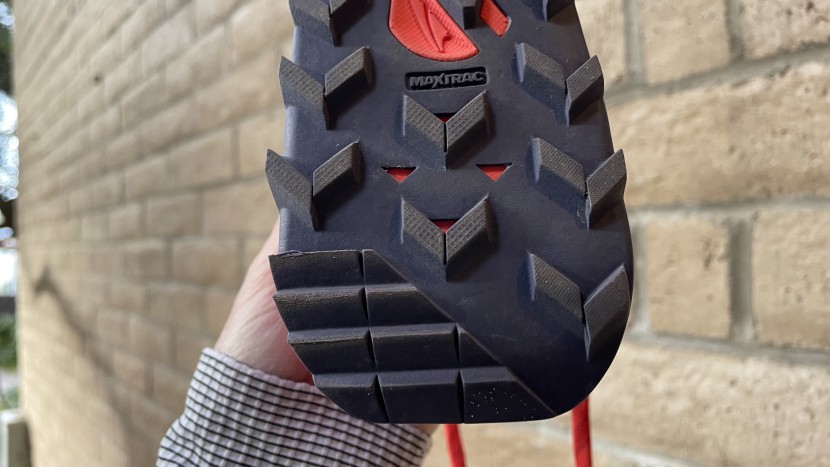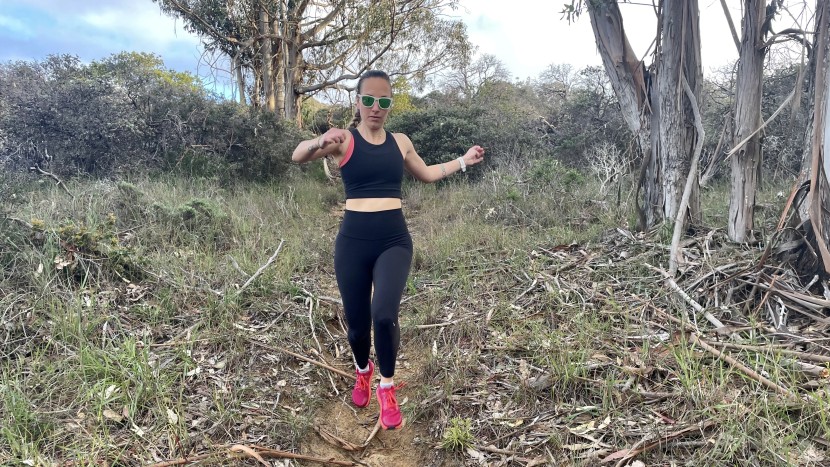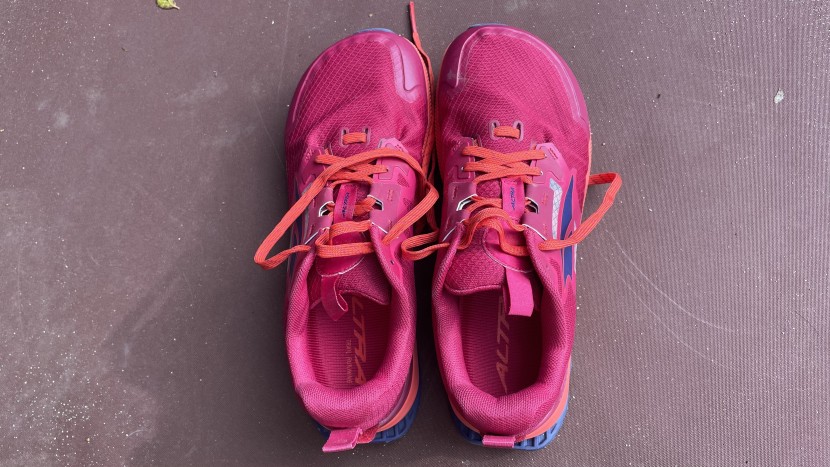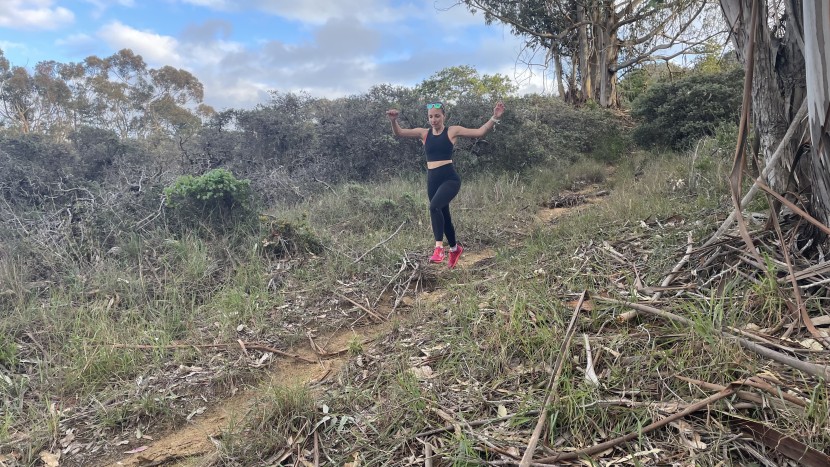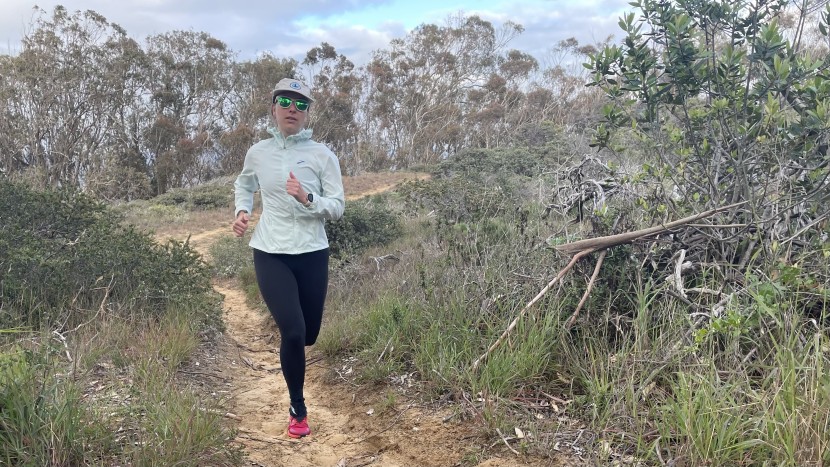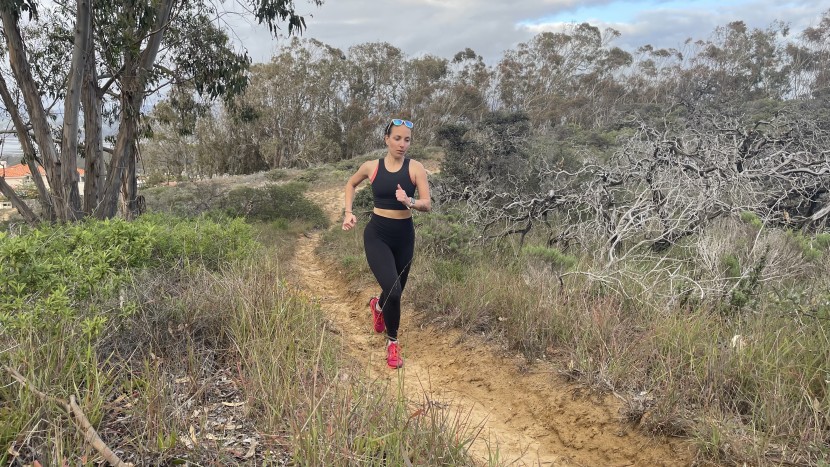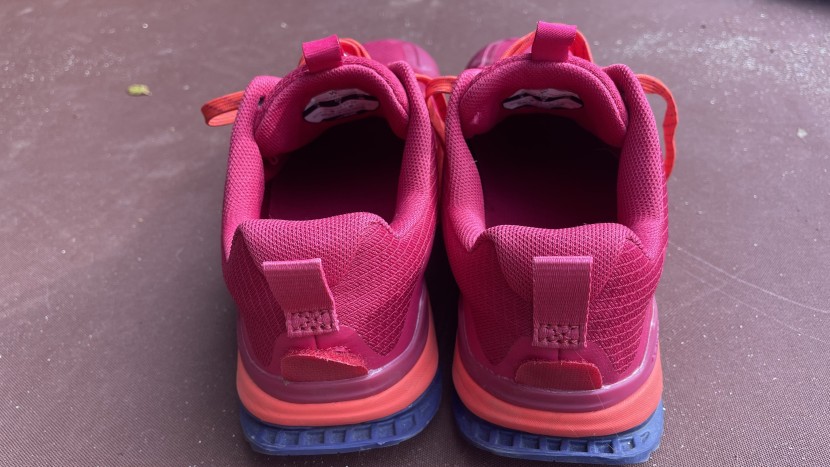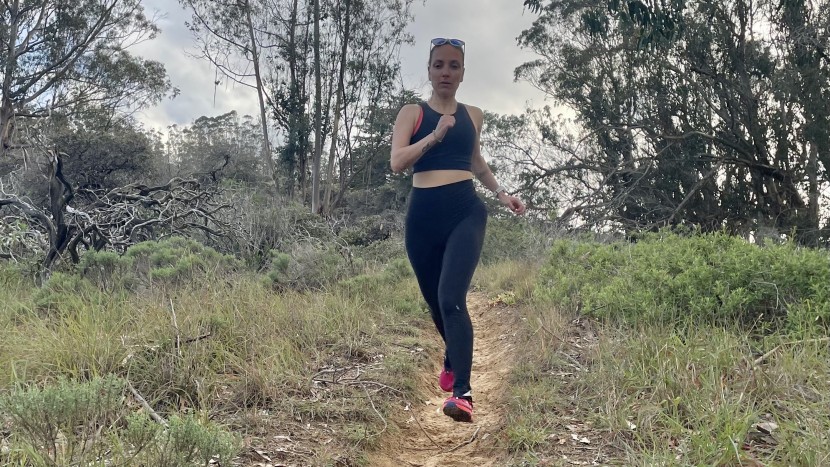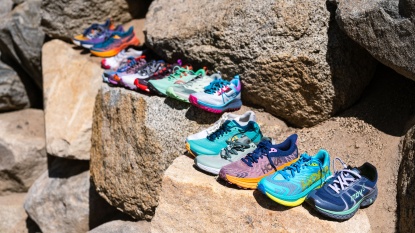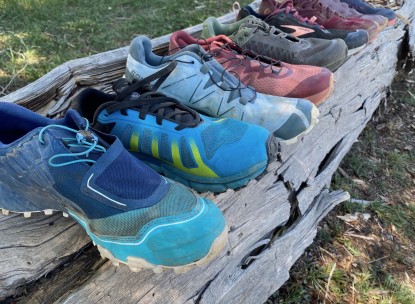Our Verdict
Our Analysis and Test Results
With a reconfigured and newly seamless upper, one of the most comfortable trail running shoes we've tested becomes more comfortable. Each women's size 7 US weighs just over 8 ounces, which is low considering that the Lone Peak 7 contains a rock plate and toe bumper for added protection. The protection and lighter-than-average weight of this newest version confirmed our love for this mainstay runner.
Foot Protection
The rock plate, underfoot cushion, and 23mm measured stack height of the Lone Peak 7 provide a protective platform for this zero-drop shoe.
The newly designed upper of the Lone Peak 7 is awesome. It is now seamless, which adds comfort and also removes the small areas where sand and debris could sneak in on previous versions. This reconfigured upper structure leads to slightly less breathability, but it adds fantastic protection.
Altra removed the drainage holes that were present on the Lone Peak 6, which allows the entire upper of the shoe to be virtually impenetrable to sand and small rocks.
Altra is known for wide, uniquely-shaped toe boxes, and the Lone Peak 7 is no exception. Having ample toebox space is a great first line of defense when it comes to protecting your digits. The second and stronger line of defense is the toe bumper, which is minimal but super functional. A bit of the outsole also extends up toward the top of the toe box, creating a good protective barrier.
Traction
Altra redesigned the lug pattern on the base of the Lone Peak 7, which levels up its already-great traction. The lugs are arrow-shaped, with the points lining up perfectly at the forefront of the shoe and then placed slightly off-kilter towards the heel side.
This intelligent, MaxTrac rubber design ensures that you have the grip you need beneath you. Unlike many shoes that will place smaller lugs and rubber up onto the heel, toe, and even lateral edges, the rubber of the Lone Peak is laid out as a flatter surface, minus the small piece that helps protect your toes. This unique design, coupled with the Lone Peak's zero-drop profile, creates a super functional running shoe that you can wear across many different terrain types. We often see shoes that excel on one type of terrain or another, but the design of the Lone Peak 7 ensures iconic versatility.
Our favorite update to the Lone Peak 7 is that, instead of having a uniform tread pattern, Altra added what can only be described as small fins to their lug pattern. The toe platform's inner edge has four fin-shaped lugs, which help give you added traction when toeing off.
The lateral edge of the heel has them too. We didn't notice any difference on the heel side of the shoe while running, but we imagine these lugs could come in handy if you're slipping down a steep trail and need to rely on something to help keep you upright. This redesigned pattern ultimately earned the Lone Peak 7 higher marks in the traction category because of how functional it is, especially beneath the big toe mound.
Sensitivity
The Lone Peak 7 has never been known for its sensitivity. Typically, super comfy shoes don't allow you to feel every bit of undulation from the trail below, and that is definitely the case here. That said, you will still be able to receive valuable information from the trail beneath you.
As usual, we recommend outlining what your trail shoe priorities are and then making your decision from there. Other shoes are equally comfortable but far less cushioned, providing more sensitivity. It's a very personalized trade-off. However, if you want a shoe that prioritizes comfort and allows you to feel some of the trail but not the nitty-gritty details, we feel that the Lone Peak 7 strikes a nice balance.
Stability
As we have mentioned time and time again, zero-drop shoes tend to be our favorites when it comes to stability for a variety of reasons. We approach each new iteration with fresh eyes and without bias, but the Lone Peak 7 is once again a notably stable shoe.
Zero-drop shoes have their drawbacks for some runners, but we find that they offer above-average stability. Because your heel rides on a level plane with your toes, you will tend towards pressing into the heel side of your foot more than if your heel was lifted. By pressing into the rear side of the foot, you can more completely engage the rear chain of muscles in your legs. More muscular engagement leads to more overall stability, which is one of the reasons why the Lone Peak 7 earns high marks here.
We look at other elements when assessing a shoe's stability, too. We evaluate how much lateral movement each shoe allows and assess the overall feelings of stability while running over varied and often technical terrain. The updated Lone Peak doesn't allow for much lateral movement, and its overall fit feels very stable during runs. The excellent traction and lug patterning further inspire confidence and stability when climbing or descending rocky mountain faces.
Comfort and Fit
The updates to the Lone Peak increased its functionality and durability but largely left its comfort unchanged. We have no complaints about that.
The plush interior of the Lone Peak 7 hugs your feet and stays comfortable during long days. Altra has made some serious efforts to improve the longevity of their interior cushioning, and it shows. The new version of the Lone Peak is far less packed out than previous models that endured similar testing.
The toe box of the Lone Peak 7 is spacious and well-cushioned, a delightful change from many of the narrower and more rigid toe boxes of other popular trail shoes. If you are increasing your trail running volume, having a roomier toebox is crucial to maintaining healthy feet and comfort.
We found ourselves reaching for the Lone Peak for our recovery runs after we beat our feet up in more aggressive shoes. If a comfortable trail shoe that provides lots of space but doesn't feel heavy underfoot is what your heart desires, look no further.
Weight
The overall weight of the Lone Peak 7 is pretty middle-of-the-road. That said, for the amount of cushion and protection this shoe provides, 8.14 ounces for a women's size 6.5 is really lightweight.
Altra designed the upper of the Lone Peak 7 to be phenomenally lightweight, and we can feel it as we run. Oftentimes, shoes that boast more protective elements feel heavy or clunky underfoot, but that is not the case with the well-balanced Lone Peak. It is very clear that the upper has become as lightweight as possible while maintaining the shoe's protective structure.
Should You Buy the Altra Lone Peak 7?
If comfort is king and a zero-drop shoe is calling your name, then the Lone Peak is almost certainly the shoe for you. This tried-and-true trail shoe includes updates that make it an even better choice. If you want something that will feel comfortable during double-digit miles on tough trails, we recommend slipping your feet into the Lone Peak.
What Other Trail Running Shoes Should You Consider?
The Lone Peak offers some elements that most of the other shoes in our roundup don't. The closest cousin is the Topo Ultraventure 3. The Ultraventure is an incredibly rugged shoe with a similar structure, including a large toebox and a spacious and comfortable midfoot. The Ultraventure has a bit more arch support and structure, and while it weighs nearly the exact same as the Lone Peak, it feels far clunkier on the trail. If you want a shoe with ample toebox space but don't care about an excessively plush interior, the Salomon S/Lab Ultra 3 is a spacious and rugged choice. And if you like the idea of comfort but don't want to dive into zero-drop territory, the Salomon Pulsar Trail is a fantastically comfortable shoe, too. It is spacious enough without feeling like the toebox is oversized.


